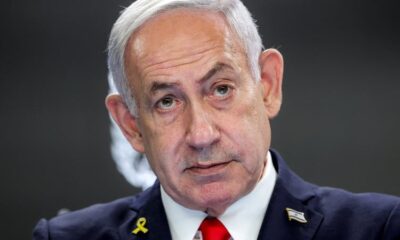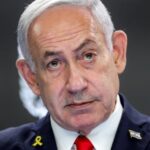Breaking News
Labour MPs gather in Liverpool as Starmer mounts fightback against Reform
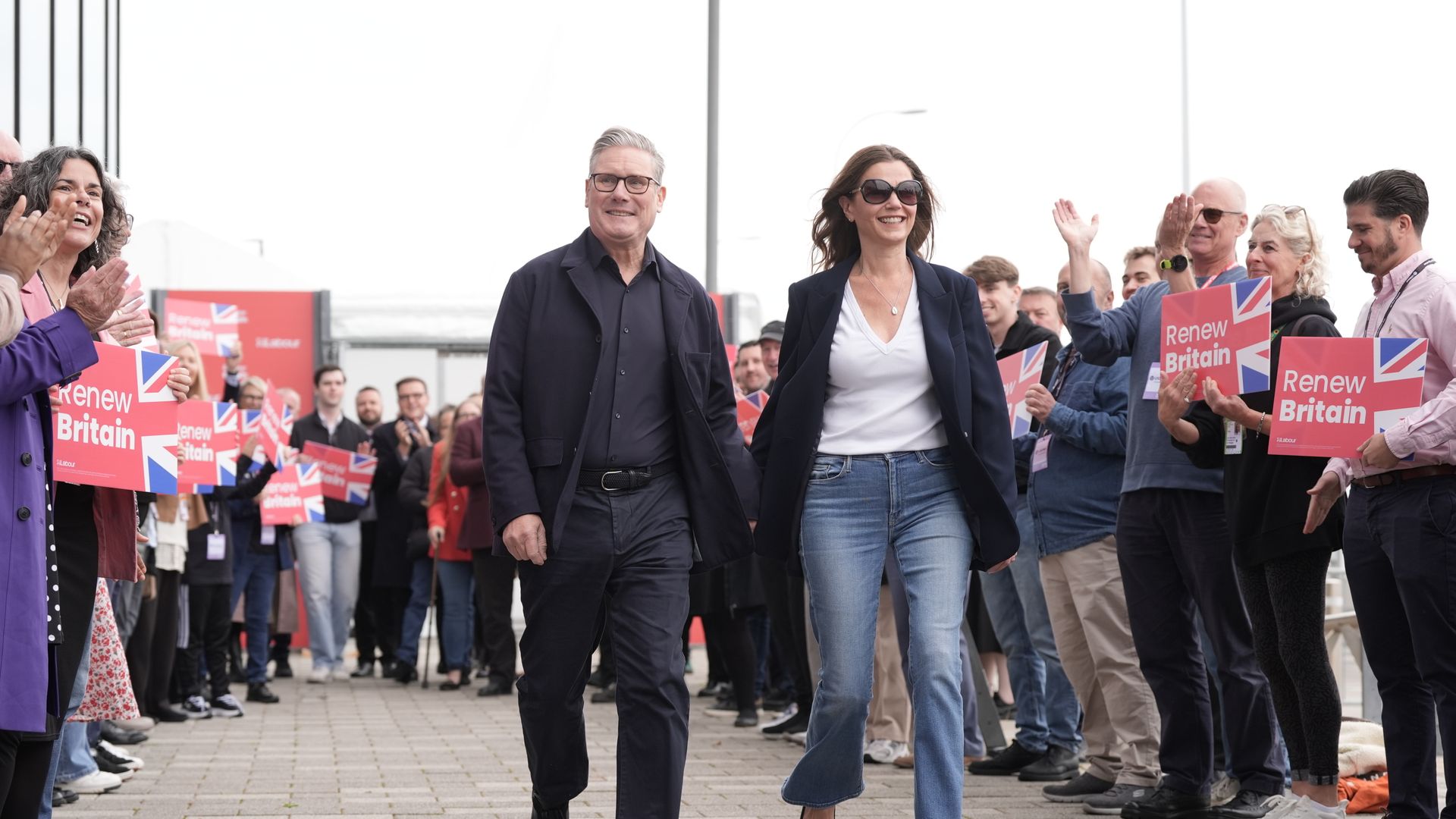
Read more on post .
Labour MPs are gathering in Liverpool for the annual party conference as Sir Keir Starmer attempts to mount a fightback against dire polling and threats to his leadership.
The prime minister said he will use the four-day event to show Labour can be an alternative to the “toxic divide and decline” offered by Reform UK, describing this as “the fight of our times”.
Sir Keir is under pressure after two separate polls predicted Nigel Farage’s party will win the next general election as voters turn their backs on mainstream politics.
It is the latest bit of bad news for the embattled prime minister, who has faced a month of scandals surrounding his top team alongside speculation Greater Manchester Mayor Andy Burnham could mount a leadership challenge.
Speaking from the conference venue on Saturday night, Sir Keir said the next few days are a “really big opportunity to make our case to the country, make it absolutely clear that patriotic national renewal is the way forward, not the toxic divide and decline that we get with Reform”.
He later insisted he could “pull things around”, telling The Sunday Times: “It is the fight of our times and we’ve all got to be in it together. We don’t have time for introspection, we don’t have time for navel-gazing.
“You’ll always get a bit of that at a Labour Party conference, but that is not going to solve the problems that face this country.
“Once you appreciate the change – in the sense of the division that Reform would bring to our country and the shattering of what we are as a patriotic country – then you realise this is a fight which in the end is bigger than the Labour Party.”
Much of the next four days is likely to be dominated by discussions on how exactly Labour could beat Reform – and whether Sir Keir is the man for the job.
PM’s future in doubt
There has been rampant speculation Mr Burnham could mount a leadership challenge after he made a series of high-profile interventions this week, criticising the direction of the government and claiming Labour MPs had asked him to stand.
The so-called “King of the North” has many hurdles to overcome before that could be a possibility – he would have to win a seat in Westminster through a by-election if one became available, then get 80 colleagues to back him.
One MP told Sky News that lots of backbenchers are “reluctantly coming to the conclusion” that Sir Keir’s downfall is a “not a matter of if, but when” – citing Mr Burnham or Health Secretary Wes Streeting as possible replacements
However they stressed that they did not want to see the prime minister go and hope he can turn things around ahead of the local elections in May.
Two-child benefit cap speculation
Many MPs want the prime minister to use the conference to set out a positive vision that offers hope for the future – saying his rhetoric on “tough choices” during the first 12 months backfired with the public.
The boss of Unite, Labour’s biggest union funder, has threatened to break its link with the party unless it changes direction.
In a signal the leadership is listening, there have been hints from senior ministers that the government could use the conference to scrap the controversial two-child benefit cap.
The limit is opposed by over 100 Labour MPs, both of Labour’s deputy leadership candidates and other senior party figures such as Mr Burnham and former prime minister Gordon Brown.
Two MPs who were suspended for rebelling over the measure last year – John McDonnell and Aspana Begum – had the whip reinstated on Friday.
Mr McDonnell, the shadow chancellor under Jeremy Corbyn, said he hopes “this is a signal the government has decided to scrap the cap”.
Key announcements
Sir Keir’s allies rallied round him ahead of the conference, with Business Secretary Peter Kyle claiming the prime minister received a “rapturous reception” at events he has been speaking at on Saturday.
Sir Keir will address the conference on Tuesday but there will be speeches from cabinet ministers throughout the event, with Chancellor Rachel Reeves to speak on Monday.
The opening day will kick off with a pledge from Housing Secretary Steve Reed to construct three new towns before the next election, in Tempsford in Bedfordshire, Leeds South Bank, and Crews Hill, north London.
In one of a number of announcements overnight, the government also said that it will underwrite a £1.5bn loan guarantee to Jaguar Land Rover as it continues to face a shutdown following a mass cyber attack.
Meanwhile, Chancellor Rachel Reeves told The Times she is pushing for a new youth mobility scheme and an improved trading relationship with the European Union in a bid to reduce the need for tax rises in the forthcoming budget.
And Home Secretary Shabana Mahmood signalled a major change in immigration policy, telling The Sun on Sunday she would “reset” immigration laws so foreigners must prove their social worth before being allowed to settle in Britain.
Watch the Sunday Morning with Trevor Phillips show every Sunday on Sky News from 8.30am. Our guests today include Housing Secretary Steve Reed, Unite general secretary Sharon Graham, Labour peer Lord Glasman and Children’s Laureate Frank Cottrell-Boyce.
Breaking News
Crisis in Israel could shape country for generation
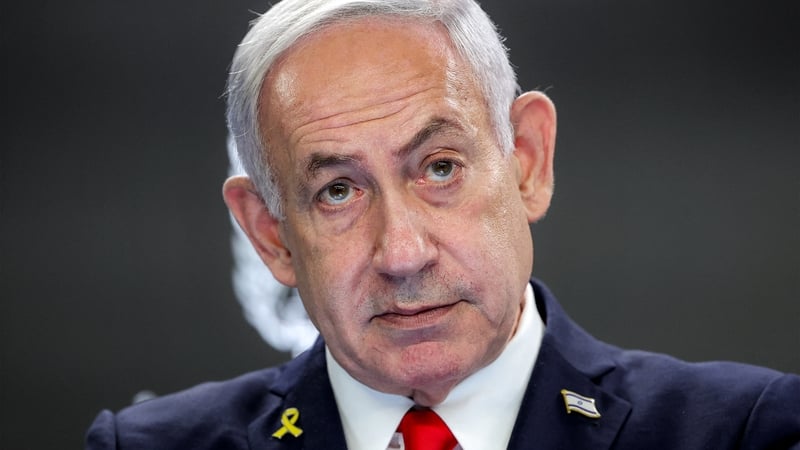
Read more on post.
Israel is in the grip of an internal and external crisis that could shape the country for a generation.
It has become increasingly isolated internationally, with 150 countries now recognising a Palestinian state, and economic, cultural and sporting boycotts are mounting.
Domestically, while the sense of national cohesion following the trauma of the 7 October attacks is holding up, there are deepening cracks in the consensus thanks to the increasingly divisive policies of Israeli Prime Minister Benjamin Netanyahu and his handling of the Gaza war and the hostage situation.
In July, the Israeli Democracy Institute (IDI) found that only 40% of the public had trust in Mr Netanyahu, despite the 12-day Israel-Iran war, which commanded broad public support.
While the poll suggested Mr Netanyahu’s base was intact, he was losing support among moderates, most likely because of the failure to bring home the hostages.
Last month, the IDI found that two-thirds of the public would support a deal involving the release of all hostages in exchange for an end to the war and the withdrawal of the IDF from Gaza.
Yet, around half of all Jewish Israelis (49%) supported the security cabinet’s decision in August to expand the military operation in Gaza “including taking and holding territory”.
Israelis appear to be retrenching into competing blocs, with the left ever more hostile to the war and Mr Netanyahu, while the right embraces increasingly hardline attitudes to Palestinians both in Gaza and the West Bank.
Despite that, the number of Jewish Israelis who believe society can sustain the burden of fighting the Gaza war has fallen from 40% in March 2024, to 28% today.
“There has been a consensus around [prioritising] the hostages of between 70% to 75% for the past year,” says Tal Schneider, political correspondent at the Times of Israel.
“At the beginning [of the war], people believed you needed to finish the job inside Gaza. But now, for at least a year, or year and a half, all polls suggest you need to get the hostages out first.
“People are willing to see the war end, even if Hamas is not completely done. As long as you have living Israeli people inside Gaza, you cannot conduct a war like that, because you’re going to hurt them.”
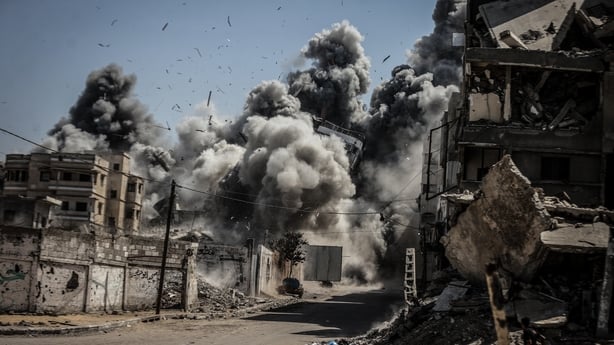
War fatigue is not the same as a shift in attitudes towards the Palestinians, and poll after poll shows that trust between both sides has evaporated.
In June, the Pew Research survey found that only 21% of Israelis agreed that “peaceful coexistence with a Palestinian state is possible,” the lowest level since 2013.
In September last year, a poll by the Palestinian Center for Policy and Survey Research (PCPSR) and Tel Aviv University found that most Israelis believed terror attacks on Israel would persist or increase if a Palestinian state were established.
A survey of Palestinians in Gaza in May by the PCPSR found that although support for 7 October had declined from 64% last September, some 59% still believed Hamas was correct to launch the attack, with almost two-thirds believing it had “revived international attention to the Israeli-Palestinian conflict and that it may lead to increased recognition of the Palestinian state”.
That said, 87% of Palestinians in Gaza surveyed did not believe Hamas had carried out the atrocities captured on video on 7 October.
Hamas’s own pronouncements have been highlighted by Israelis who say they are horrified by the international clamour for a Palestinian state.
Read more: West Bank – Tales of the dispossessed
On 2 August, Ghazi Hamad, a senior Hamas official, told Al Jazeera that “the initiative by several countries to recognize a Palestinian state is one of the fruits of October 7. We proved that victory over Israel is not impossible, and our weapons are a symbol of Palestinian dignity”.
Benjamin Netanyahu clearly aims to play up these fears as he navigates increasingly narrow political terrain.
His rhetoric at the UN General Assembly on Friday suggests he is tacking hard to the right, describing acceptance of a Palestinian state as “national suicide” and declaring, to a largely empty chamber, that “Israel will not allow you to shove a terror state down our throats”.
Mr Netanyahu has even suggested Israelis should tough it out and weather the storm, depicting the country as a “Super Sparta”, an austere, militarised, self-isolated and self-sufficient society.
On 17 September, he launched a programme to make Israel less reliant on the United States for weapons, declaring that it would “build an arms industry that will match the best arms industries in the world with one proviso”, that they want to produce first for themselves “on a much larger scale and with unimaginable innovation”.
While senior military figures have publicly expressed alarm at Mr Netanyahu’s expansion of the ground offensive into Gaza City, other leading voices from the security establishment have spoken of a paradigm shift.
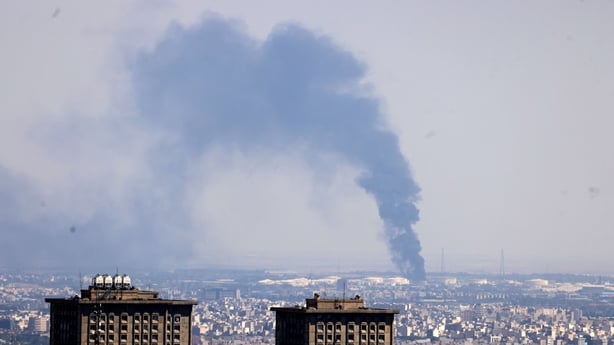
In the past Israel used its overwhelming superiority to deter its enemies; now it must use that force to defeat them.
Across the region, this is reflected in Israel’s withering assault on Hezbollah in Lebanon, and the 12-day war against Iran, in which it is thought to have seriously degraded its nuclear programme.
In Gaza, according to Meir Ben-Shabat, a former national security advisor, and Asher Fredman, former Israeli chief of staff, Israel should apply this doctrine to the hilt without fear of international outrage, or even criticism from the United States.
“In the current moment,” they wrote this month in Foreign Affairs, “Israel must prioritize its war aims even at the cost of external criticism. Allowing Hamas to remain the dominant military and governmental power in Gaza, either de jure or de facto, is unacceptable. The full demilitarization of Gaza, which requires military force, is the only way to keep Israel truly safe.”
That national obsession with “safety” is key to understanding the current Israeli mindset. Israel has long felt surrounded by enemies bent on her destruction, and 7 October intensified that view; Israelis will frequently tell you that Hamas will do the same again, given half a chance.
So, while a growing number of Israelis oppose the war, and are mindful of the humanitarian catastrophe unfolding in Gaza, many remain sceptical about the death toll, or see the endgame through the prism of their own suffering.
“They think it’s gone too far,” says Tal Schneider, of the Times of Israel.
“It’s hurting Israel on so many levels, and we cannot go on like this, both on the humanitarian side, but also for Israeli people [themselves]. They look at their own, they look at the soldiers, the families of the reservists, and obviously the hostages.
“Even economically, we cannot go on like this, with the international isolation, the rise of anti-Semitism around the world. It’s all part of the same problem. We need to end it.”
Israel’s growing isolation is understood to be one of the motivating factors in Donald Trump’s 21-point peace plan, in reality a concoction of pre-existing drafts, which he circulated to Arab and Muslim leaders at the UN on Wednesday.
The plan involves the release of all remaining hostages, a permanent ceasefire, the gradual withdrawal of the IDF from all of the Gaza Strip, a post-war plan that includes a governing mechanism in Gaza without Hamas and a security force that would include Palestinians but also soldiers from Arab and Muslim countries.
Gulf states would fund the new administration and help with reconstruction; there would be some involvement for the Palestinian Authority.
Those in attendance on the Arab and Muslim side are said to have responded positively, on the condition that Israel would not annex parts of the West Bank or Gaza and that humanitarian aid to the enclave immediately increase.
While Mr Netanyahu’s far-right allies Bezalel Smotrich and Itamar Ben Gvir continue to clamour for annexation and settlement expansion in the West Bank, he cannot afford to ignore the hardening position of Gulf Arab states.
President Trump regards the Abraham Accords, which restored diplomatic and economic ties between Israel and a number of Arab states, as a signature success of his first term; those accords will be in jeopardy if annexation goes ahead.
“There was a plan for a reduced cabinet meeting – without Smotrich and Ben Gvir – to discuss potentially annexing certain parts of the West Bank,” says one Western diplomat.
“The meeting was cancelled because the [United Arab] Emirates said, for us, this is a red line, and if you do it we may have to reconsider our Abraham accord and go back to square one.”
Israel is also feeling European pressure, despite the narrative that the EU has not been tough enough.
Even if Germany and Italy have blocked a move to suspend Israel’s participation in the Horizon Europe programme, from which Israeli companies and research facilities have benefitted to the tune of €1.1 billion, a number of partner companies, particular from Belgium and the Netherlands, have suspended cooperation out of fear that dual-use goods are involved.
As more countries recognise Palestine, they will be under pressure to recalibrate their willingness to take action against Israel, given the new reality that when one state takes allegedly offensive action against another it may require a stricter legal response.
For the families of the remaining hostages in Gaza, only around 20 who are assumed to be alive out of the 51 remaining, Mr Netanyahu’s uncompromising pitch to the far-right, and his lack of a game plan to end the war, is prolonging their sense of trauma.
“There is one and only one option for a ceasefire and a deal that would bring back all the hostages,” says Udi Geron, whose cousin Tal Haimi was shot dead by Hamas on 7 October and whose body was then abducted into Gaza.
“I will know that this will be in place when I hear Prime Minister Netanyahu saying: we are done, we are going to end this war in order to return all the hostages,” he tells RTÉ News.
“Or until I hear Donald Trump saying: this war is over, I have brokered the deal that brings back all the hostages, and this is what’s right for the region, right for the US, right for the stability of the Middle East – until one or the other says this, then the rest is just dust in the wind.”
Breaking News
Stakes are high for Gavin on campaign launch day
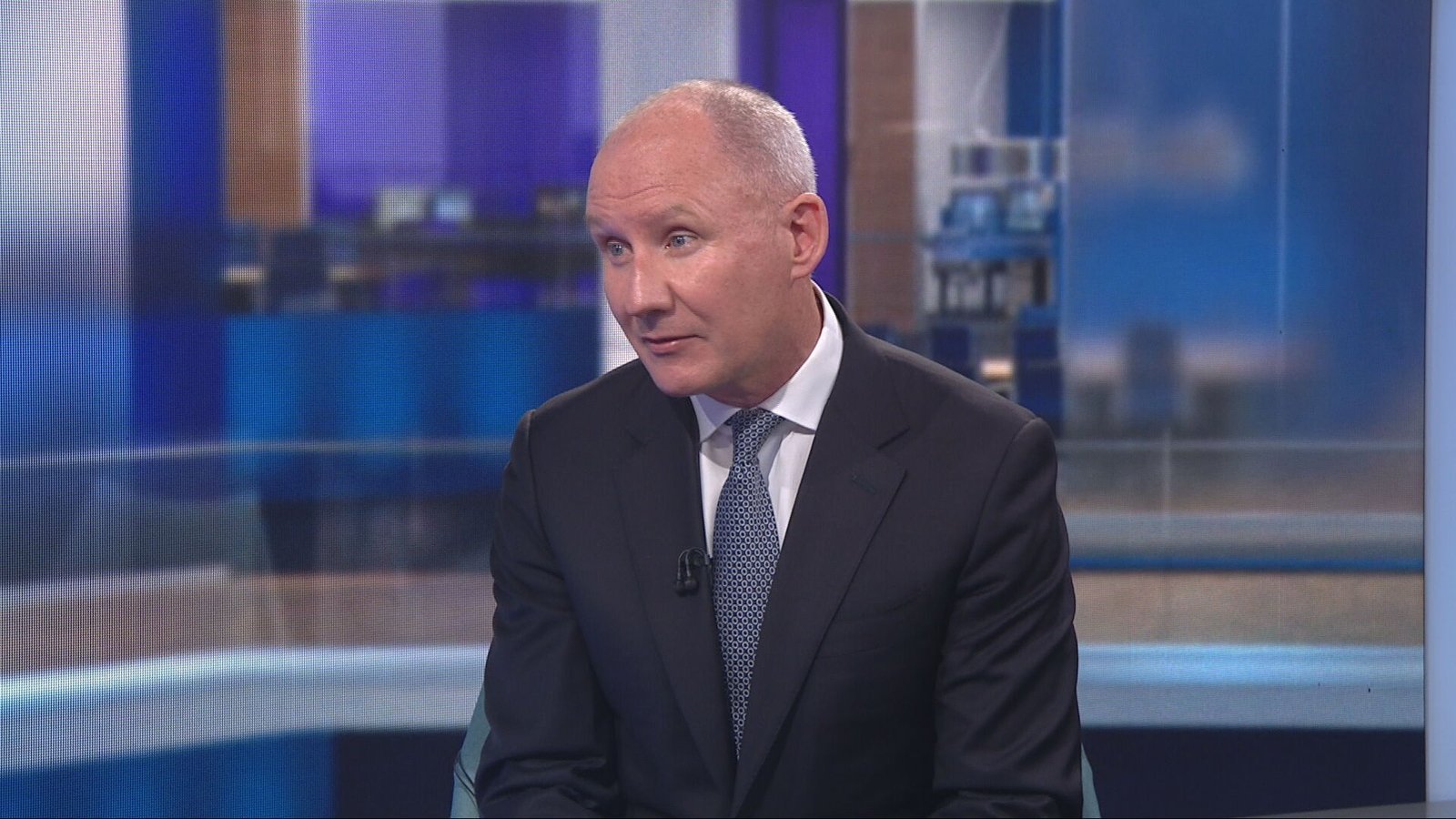
Read more on post.
There are some august former high-ranking members of the Defence Forces who without much prompting will talk at length about Jim Gavin’s leadership qualities.
His work as part of the UN operation in Chad which focused on protecting civilians is cited in particular.
Towards the end of that mission as the rebels began to enclose the UN base, it was the unflappable Mr Gavin who flawlessly oversaw the departure of 27 military flights from dawn until dust over the course of one fraught day.
All this was achieved on a potentially perilous desert airstrip.
It was surely something of that same demeanour Mr Gavin exuded when he met Taoiseach Micheál Martin over the summer and got the Fianna Fáil leader’s blessing to contest the presidency.
Yes, the parliamentary party vote followed but the boss’s imprimatur was unlikely to be overruled.
However, many of those within Fianna Fáil who were worried that they did now know a great deal about the former Dublin GAA football manager have not had their concerns completely assuaged.
Indeed, throughout the week, members of the party were shrugging their shoulders or looking towards the ground when asked how they felt about their presidential candidate, now that the contest is fully under way.
Some whispered that it suits certain agendas if the party leader’s chosen candidate suffers in the run up to the 24 October election.
The predominant view though was that Mr Gavin’s campaign had failed to catch fire, and it was not clearly evident how it could be remedied.
There was even a charge that all this was leading some figures, who should be enthusiastically out canvassing, to quietly retreat from the campaign.
A stance that is regarded by several Dublin members of the party as being a massive overreaction, given that this election effort is really only in its infancy.
Read more: Áras candidates voice support for a united Ireland
Those who have been out on the stump with Mr Gavin talk of a candidate who is growing into the role, and they highlight the fact that many people are keen to talk to him.
His ability to interact with people in those situations is described as good and he is suitably relaxed in that environment.
But unquestionably the early television appearances left a sizable swathe of TDs and Senators underwhelmed.
All this after Mr Gavin had urged them at the party’s recent think-in to each mount a committed canvass in their individual areas.
Officially the word from Mr Gavin’s camp is that there is no anxiety in the air about what is unfolding.
Plus, there is a focus on the high energy approach that will define the period ahead.
This rhetoric will be tested once the presidential television debates commence, with the first scheduled to take place tomorrow night.
Today Mr Gavin will have his official campaign launch.
This will have to be perfectly pitched to two audiences. They are the voting public obviously, but also any Fianna Fáil politician who might be in two minds about their level of commitment to his cause.
A failure on either front could present significant difficulties for Mr Gavin.
The stakes could not be higher.
Breaking News
Is it good economics to pay €10 million for an NFL match?
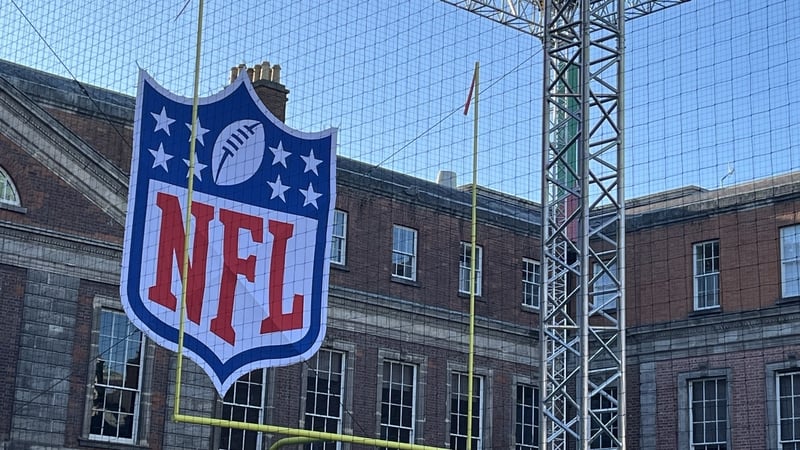
Read more on post.
Thousands of American tourists have come to Dublin this weekend to watch the Pittsburgh Steelers challenge the Minnesota Vikings in Croke Park.
It is the first time ever that an official NFL (National Football League) regular season game will take place in Ireland.
Ireland has hosted seven college American football games since 2012 but this is the first one from the professional league. The score in this game will count towards who makes it to the Superbowl next spring.
The Government has approved an allocation of up to €9.95 million (excluding VAT) to the NFL in order to facilitate this game being played in Dublin.
The Department of Sport told RTÉ’s This Week that of this money, $5 million (€4.2m) goes to the NFL as a licence fee.
While the balance goes towards necessary infrastructure works in Croke Park and for a range of operational support costs.
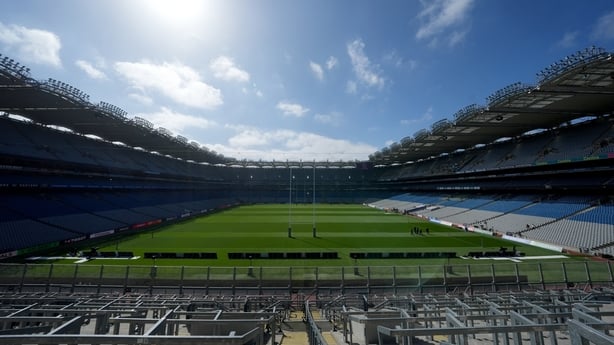
Minister for Sport, Patrick O’Donovan has defended that decision saying that getting involved in the NFL market is a “massive opportunity”.
“We want to make sure we don’t lose a competitive advantage in terms of other cities who might want to eat our supper because the range of global viewership that this will bring to Dublin and Ireland is like nothing we have seen before,” he said.
Ireland is just the fifth country to host an NFL match outside of the US.
Games have been hosted in the UK, Germany, Mexico and Brazil.
However, People Before Profit TD Paul Murphy told RTÉ’s This Week that it was “utterly crazy” to give €10 million in public money to the NFL.
“The NFL can well afford these costs,” Deputy Murphy said. “They don’t need the subsidy in order to put on a game in Ireland. It’s simply free money for them.”
NFL executive Peter O’Reilly said the league was “investing significantly” in the Croke Park event.
“There are opportunities both in economic impact and long-term impact and visibility,” he told RTÉ Sport in February.
The match is estimated to attract approximately 30,000 international visitors to Ireland and 20 million television viewers.
The Government estimates the economic benefit to the country for hosting the game will be around €64 million.
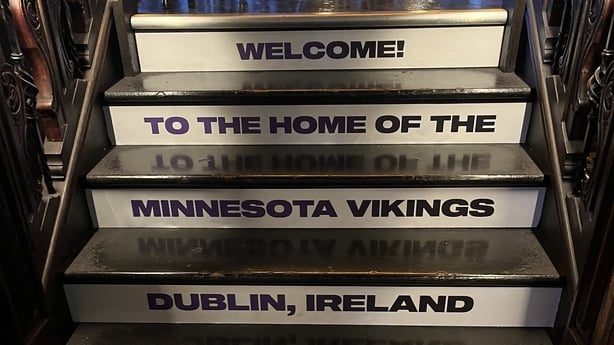
Chief Executive of the Irish Tourism Industry Confederation Eoghan O’Mara Walsh said the €10 million given by the Irish Government is a good investment.
“State investment behind major sporting and tourism events do pay dividends,” he said.
“Croke Park is going to be full, and the vast majority are going to be international visitors and they’re all spending their money on hotels and restaurants and pubs and tourist attractions.
“Many of them are staying in Ireland well beyond the weekend and touring the country,” he said.
“Secondly, there’s millions of eyeballs in the US on Ireland in the run up to the game and during the game and that can only be a good thing in terms of people considering Ireland as a holiday destination in the future.”
Previous college American football matches have attracted large crowds and economic activity.
Read more: Over 27,000 US tourists in Dublin as college football returns
In August 2024, the College Classic series game played in Ireland attracted 27,000 US tourists to the economy and generated €115 million in the economy.
The game between US college football teams Notre Dame and Navy at the Aviva Stadium in 2023 generated €180 million, according to Government figures.
In 2022, Munich hosted an official NFL game which provided a €70.2 million economic boost to the German city.
Earlier this week, Minister for Sport Charlie McConalogue said the Exchequer will receive €20 million in tax returns as a result of the NFL match taking place in Croke Park.
Mr O’Mara Walsh argued that, when considered as an investment in tourism, €10 million to the NFL is “actually fairly small in terms of the return”.
“Twenty-nine cents of every euro spent by a visitor goes back to the exchequer in tourism related taxes,” he said.
“There’s an indisputable return on investment for the State if they put money behind tourism events and this is a very good example of that.”
Funding for Irish sport just under €30 million last year
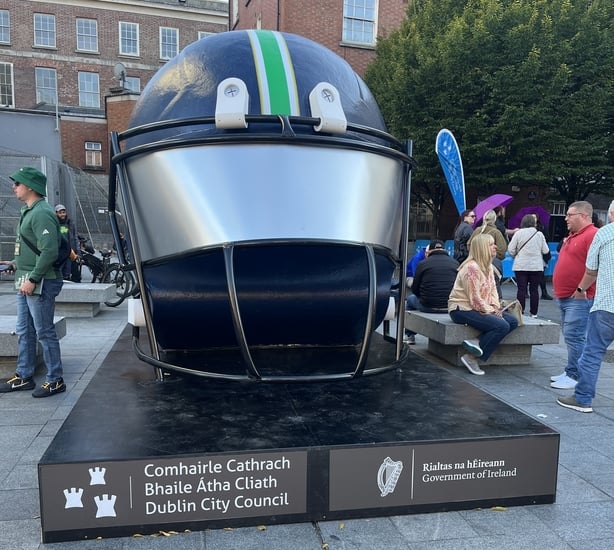
The NFL is the world’s richest professional sports league. For the 2024 campaign, the NFL distributed more than $13.8 billion (€11.7 billion) in revenue to its 32 teams.
For comparison, in the 2023-24 season, Premier League clubs made £6.3 billion (€7.2 billion) in revenue.
The combined wealth of the team owners is close to $1 trillion.
“One of the controversial aspects of the NFL is the owners and the people who run the clubs are very good at getting other people to pay their bills, and that has happened here,” said Mr Cunningham.
“Even though the Pittsburgh Steelers and the Minnesota Vikings in revenue last year raised over $1.2 billion between them.”
In 2022, it was announced that a new stadium to be built for NFL team Buffalo Bills would cost $1.4 billion (€1.19bn) but $850 million (€726 million) would come from the public purse.
Last year, core funding from the State for Irish Sport was just under €30 million.
“There’s a lot of sports that are really struggling for funding, that don’t have basic facilities,” Mr Cunningham said.
“All the studies show that money invested in all sport you get back twofold,” he added.
Read more: NFL in Dublin: Greatest show on turf rolls into Croke Park
A 2019 report from the Federation of Irish Sport found that for every €100 invested in sport by Government, the Exchequer receives up to €195 in tax revenue.
There are also health benefits, as well as economic ones, to investing in sport.
“We’re giving €10 million to the NFL for one game, when the total core funding for all sports in Ireland, GAA, FAI, Sport, Ireland, Swim Ireland, is just over €30 million for the entire year,” Deputy Murphy said.
“I think the Irish State is being duped here.”
Deputy Murphy also pointed out that the NFL is a very wealthy league with wealthy owners and a lot of soft power in the US.
“The US military is very often promoted by the NFL. That’s the military that is currently funding, assisting, arming the genocide that’s happening in Gaza,” he added.
“I don’t think in any world is it justified for us to put €10 million into this one NFL game,” he said.
“You look at grassroots sports across the country, you look at people being forced to change at the side of pitches, and you think ‘Jesus, what could €10 million do in many, many local communities?’
“That would be a far better way of spending €10 million.”
Growing Popularity of NFL across the world
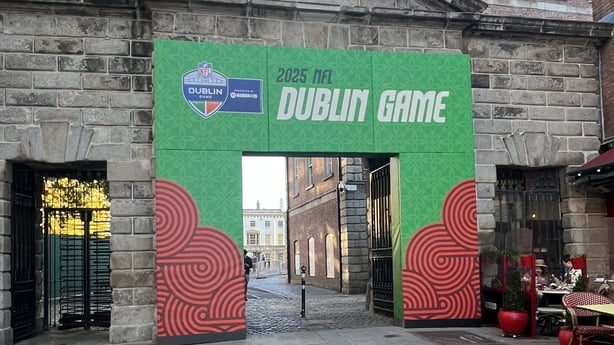
Approximately 600,000 people applied for a ticket to Croke Park for the NFL game.
“American football has grown massively in popularity over the years here,” said Mr Cunningham.
“Most of the tickets were priced at €295, three times the cost of an All-Ireland final ticket in football or hurling.”
The NFL is the main league for professional American Football in the US. The games garner huge crowds, revenue and media attention.
“In recent years, the NFL have been trying to spread their wings,” he said.
There are 272 regular-season NFL games in a year. This year, seven of those games are being played outside of the US, including in Spain and Australia.
Pittsburgh Steelers founded by Newry man
The Pittsburgh Steelers were founded by Newry-man Art Rooney. The team is still owned by the Rooney family, and they have maintained close links with their Irish heritage.
In 1997, the Steelers held a pre-season game in Dublin. More than 25,000 spectators watched them defeat the Chicago Bears in Croke Park on that occasion.
In 2023, after the Steelers were awarded marketing rights for Ireland, they stated they wanted to bring another game to Ireland.
Both the Steelers and the Vikings have designated a Dublin-pub each to nominate as their official fan bases: Fitzsimons in Temple Bar and JR Mahon’s, respectively.
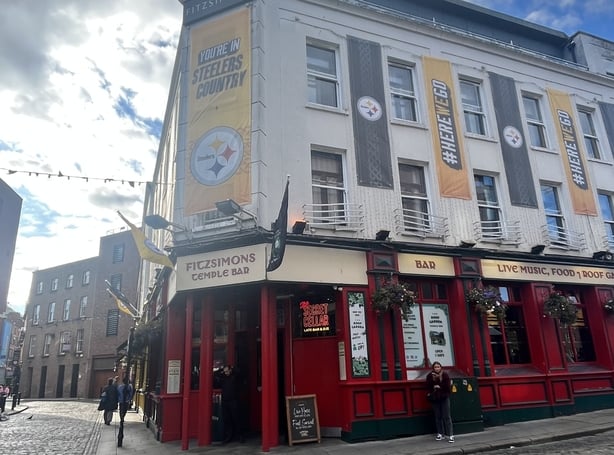
However, they are not the only ones, both the Kansas City Chiefs and the Green Bay Packers have also nominated a Dublin pub as their fan-home for the weekend (Murray’s and Sinnott’s, respectively).
Several free fan events have also been organised between Thursday and today for NFL tourists and the NFL-curious.
An NFL shop has been open for the week in St Stephen’s Green Shopping Centre and a separate shop, just for Steelers merchandise, will remain open for the entire NFL season on Clarendon Street.
As of yet, there is no guarantee that the NFL will return to Dublin next year although there are plans for further college American football games.
If today’s game goes well, we may expect them to return on an annual basis like they have done in London.
In a statement to RTÉ’s This Week, The Department of Sport said that no decision has been made regarding the hosting of future NFL games in Ireland.
“The post-event evaluation, led by Fáilte Ireland, will provide a detailed analysis of the economic and tourism impacts of the upcoming match,” it said.
“This report will inform any future considerations or discussions around potential State support for similar events.”
-
Politics5 days ago
European Parliament snubs Orbán with vote to shield Italian MEP from Hungarian arrest
-
Culture2 months ago
Fatal, flashy and indecent – the movies of Adrian Lyne revisited
-
Culture3 weeks ago
Life, loss, fame & family – the IFI Documentary Festival in focus
-
Environment1 week ago
Key oceans treaty crosses threshold to come into force
-
Culture5 days ago
Twilight at 20: the many afterlives of Stephenie Meyer’s vampires
-
Health6 days ago
EU renews support for WHO’s Universal Health Coverage Partnership
-
Culture2 weeks ago
Farewell, Sundance – how Robert Redford changed cinema forever
-
Culture4 weeks ago
What is KPop Demon Hunters, and why is everyone talking about it?













